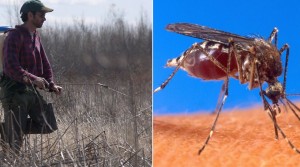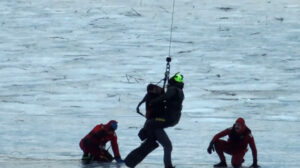A farmer from Argolis in the western Peloponnese is the first victim of the West Nile virus for summer. The man infected is in good condition, according to a statement released by the Disease Control & Prevention Centre (KEELPNO) following his discharge from hospital were he received treatment. However, authorities are on high alert and have imposed quarantines on areas with large mosquito numbers. KEELPNO officials point out that the regions where the infectious virus is expected to thrive during the summer period cannot be pinpointed, as the epidemiology of the virus is determined by a series of factors. They urge citizens to take all the necessary precautions for protection against mosquitoes.
There have been 624 cases of the West Nile virus recorded between 2010 and 2014 with 79 deaths in Greece. In 2014 6 people died as a result of the virus.
The majority of people bitten by West Nile-infected mosquitoes have no symptoms at all; about 20 percent come down with flu-like symptoms. Birds appear to be the most common carrier of the virus. Fewer than 1 percent of people infected get West Nile encephalitis, which leads to life-threatening inflammation of the spinal cord or brain.
The disease can cause people to become ill, but sometimes people do not know they have been infected, DHEC officials said. Many recover, but about 1 in 5 people who are infected will develop a fever. They also can have other symptoms, including headaches, body aches, joint pains, vomiting, diarrhea, or rashes, the agency said in a news release. Those infected can suffer fatigue for weeks or months. The most serious symptoms affect people over the age of 50 and people suffering from chronic immune diseases.
Some precautionary measures include:
– Dressing with appropriate clothing that covers as much as the body as possible
– Frequent showers and baths to remove sweat
– The application of insect repellent on uncovered leather and over clothing (according to the instructions for use)
– Mosquito nets on doors, windows, skylights, fireplace vents
– Use of mosquito nets, especially for infants and pregnant women
– Use of air insecticides, according to the instructions
– Using fans or air conditioners that repel mosquitoes
– Placement of yellow lamps outdoors as they attract less mosquitoes
– Lawn, shrub and foliage trimming
– Watering the garden in the morning
– Removing stagnant water such as pots, jars, gutters, etc. as they are spots where mosquitoes lay eggs
Ask me anything
Explore related questions





